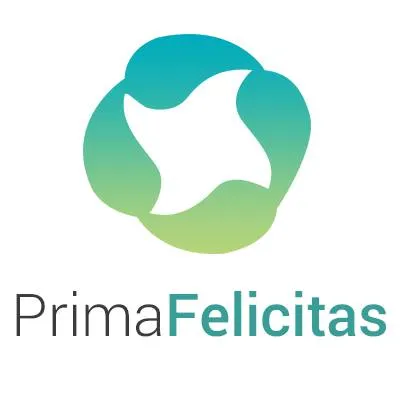A blockchain oracle is a third-party service or software that provides off-chain data for a blockchain smart contract. The decentralized Web3 ecosystem requires access to existing legacy systems, advanced computations and data sources. Decentralized oracle networks make it easy to create hybrid smart contracts. Hybrid smart contracts combine code running on the blockchain (on-chain data) and off-chain infrastructure to create complex decentralized applications. The Hybrid Smart Contracts are executed based on real events and the interoperability of traditional systems.
Blockchains are self-contained and secure, but have limited access to external data sources. Oracles bridge the blockchain and the outside world by verifying and transmitting data to the blockchain.
How Does Blockchain Oracle Work?
The role of a blockchain oracle is to collect and verify external data and then send it to a smart contract on the blockchain. The oracle can collect data from various sources such as web APIs, sensors, IoT devices and other off-chain data sources. Blockchain Oracle verifies its accuracy and integrity in a variety of ways once the data is collected. Cryptographic signatures and consensus mechanisms are some of the ways to ensure data accuracy and integrity.
Once Oracle has verified the data, it sends it to the smart contract on the blockchain. The smart contract can then use this data to perform various actions or trigger events on the blockchain, such as: For example, updating the status of a decentralized application, initiating a payment, or resolving a dispute.
Blockchains rely on oracles to allow smart contracts to interact with the outside world safely and reliably. However, oracles also introduce new potential vulnerabilities into the system, such as the risk of data manipulation or fraud. Therefore, it is important to carefully design and implement oracles to ensure the security and reliability of the blockchain system.
Blockchain oracles are divided into the following categories based on the characteristics that determine source, direction of information, and trust:
software oracle
They communicate with online sources of information (databases, servers and websites) and transmit this information to smart blockchain contracts in real time. Digital asset prices, exchange rates, current flight information, etc. are all included in the information.
hardware oracle
These oracles collect data from computers, barcode readers, and other information-gathering tools. Hardware oracles deliver real events to smart contracts for decision making in a digitally understandable form.
Incoming and outgoing oracles
Incoming and outgoing oracles determine the direction of the information to be transmitted. Receiving off-chain information and transmitting it to the blockchain constitute inbound oracles. A typical example of inbound oracles is retrieving price information for cryptocurrencies and assets from exchanges.
While outbound oracles transfer information from the blockchain to external sources, a smart contract is a prime example of an outbound oracle. If the money is deposited to a specific address, the smart contract transmits this information to a mechanism. This mechanism then opens the smart lock through an outgoing oracle.
Consensus-based oracles
These oracles use multiple oracles and consensus algorithms to derive accurate data for smart contacts and ensure that the data transmitted to a blockchain is correct. This oracle scraps data from multiple sources to transmit specific and correct data.
Computable Oracle
For various reasons such as B. block restrictions, smart contract applications leverage secure off-chain computing to provide decentralized services that otherwise cannot be delivered on-chain. Computable oracles can perform complex calculations such as B. running algorithms, executing smart contracts and providing output to the blockchain.
Human Oracles
Humans can provide data feeds and insights to a smart contract or decentralized apps (dApp) on the blockchain. The opinions may be based on real-time events or observations. Individuals can provide input that is otherwise difficult to obtain through traditional data sources. Entering weather forecasts into smart contracts is unique.
Contract Specific Oracles
This oracle has a unique use case. They are designed to provide relevant and specific data for smart contract needs.
Blockchain Oracle Use Cases
Blockchain oracles can be used across industries and provide valuable data feeds for smart contracts and dApps. Use cases for blockchain oracles are not limited to specific industries. Below are some examples where Blockchain Oracle can be used:
DeFi: The DeFi ecosystem requires oracles to access financial data on markets and assets. The information can be used to trigger buy/sell orders. Blockchain oracles generate accurate price feeds for DEXs like Uniswap.
supply chain management: Real-time tracking of goods possible through blockchain oracles. Blockchain oracles can also provide valuable information such as temperature and environmental conditions of goods, ensuring products are stored and transported under proper conditions.
Play: Blockchain oracles provide exciting and unpredictable outcomes for online games and events. They also ensure addictive gameplay by allowing users to place bets or encourage random matchmaking. Math Oracles can also be used to generate verifiable randomness for the creation of dynamic NFTs that can change the appearance of random loot boxes.
Insurance: Verifying the occurrence of events such as natural disasters or flight delays can reduce false claims. Blockchain oracles can be used to automate claims processes, reduce the risk of fraud and provide policyholders with faster payouts.
Rewards for Loyal Customers: Blockchain oracles can track customer activity and reward loyal customers with crypto or NFTs stored in smart contracts.
Choose: Voting transparency is what most activists are looking for. Blockchain oracles can pave the way to direct democracy. Blockchain-based oracles can record voting data in a tamper-proof manner and transfer it to smart contracts.
sustainability: Blockchain oracles can provide more transparency by tracking and monitoring emissions and providing better incentives for green practices. By applying advanced ML calculations to smart contracts, rewards can be distributed to people who reforest or adopt eco-friendly practices to reduce carbon emissions.
What is the blockchain oracle problem?
In a world where blockchain and smart contracts are paramount, the Oracle issue has also been in the spotlight. Blockchains are not able to pull and transfer data to external sources or systems. Blockchain oracles solve this connectivity problem. But blockchain oracles have problems. The inability to confirm the reliability and accuracy of data from the blockchain oracle is the biggest impediment to the success of the blockchain ecosystem. Blockchain oracles can be compromised. This means malfunctions and intentional manipulations of smart contracts, which can lead to financial losses. Since oracles do not fall under the blockchain consensus, their reliability and trust will always remain an issue. Given the inability of blockchain oracles to establish trust, the trustless execution of smart contracts remains a question.
Another problem that arises with the blockchain oracle is its inability to maintain privacy and confidentiality. Some data sources may contain sensitive or confidential information that should not be exposed to the public blockchain network
What is the solution to the Oracle problem?
Blockchain oracles are designed to guarantee the reliability and security that the blockchain offers. A decentralized oracle can come as a savior and resolve trust and reliability issues. It uses a decentralized network of nodes to eliminate single points of failure in smart contracts. Decentralized oracles like Chainlink use multiple data sources to minimize counterparty risk. Many platforms are moving towards decentralized oracle development to avoid data manipulation and corruption.
And when it comes to keeping sensitive or confidential information, using secure communication protocols can help.
Wrap up
Oracles are playing a significant role in revolutionizing the blockchain industry and shaping the future of DeFi applications. They can provide real-world data that can be successfully used on the blockchain. Similar to when the internet changed the way information is stored, blockchain oracles will enable hybrid smart contracts to be connected to real-world data and enforce contractual agreements.
Do you want to use the potential of blockchain to transform your business? Contact PrimaFelicitas, a first Blockchain development company who can help you to use innovative blockchain solutions.
Are you looking for help here?
Connect with our expert on a detailed conversationN
Post Views: 2



